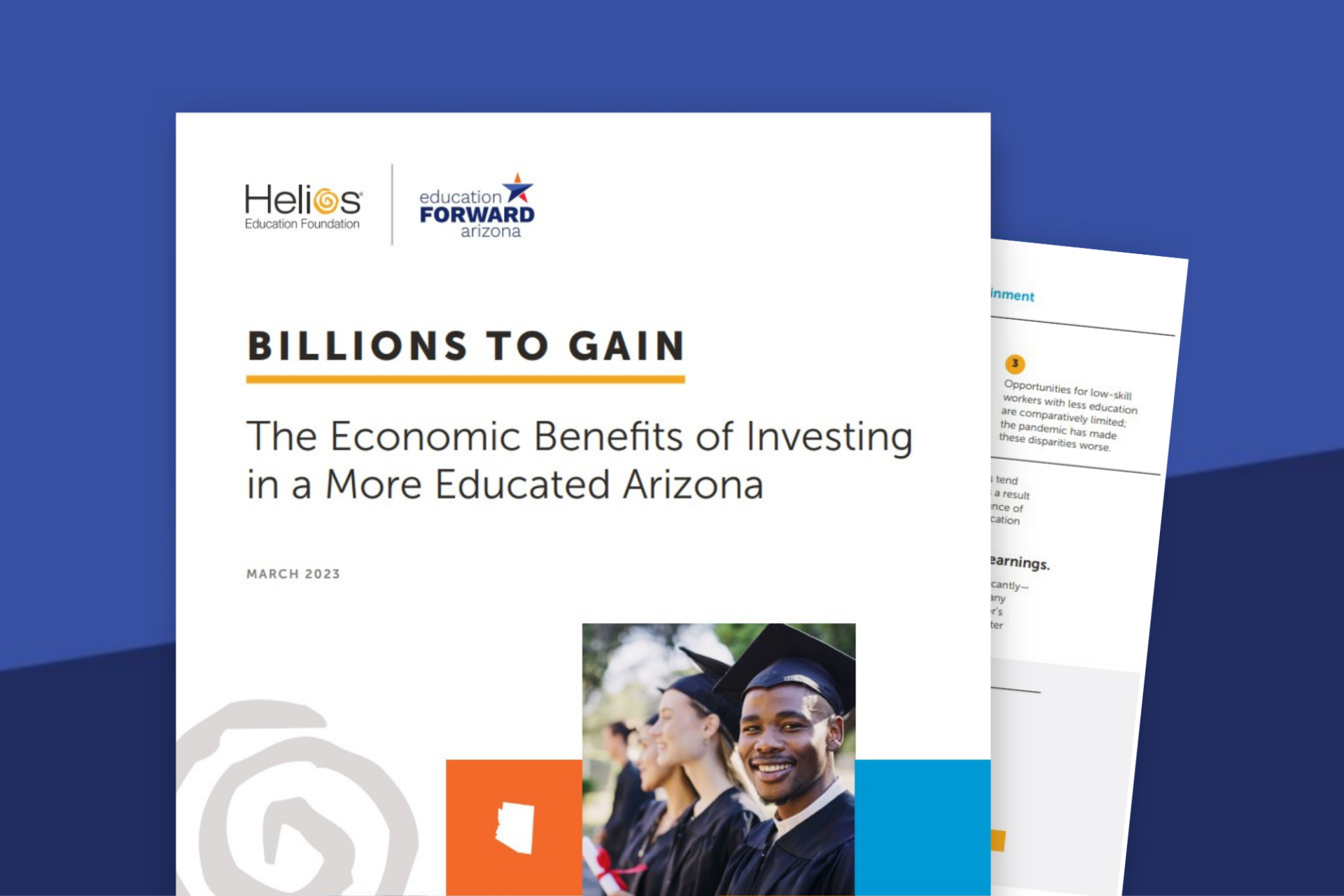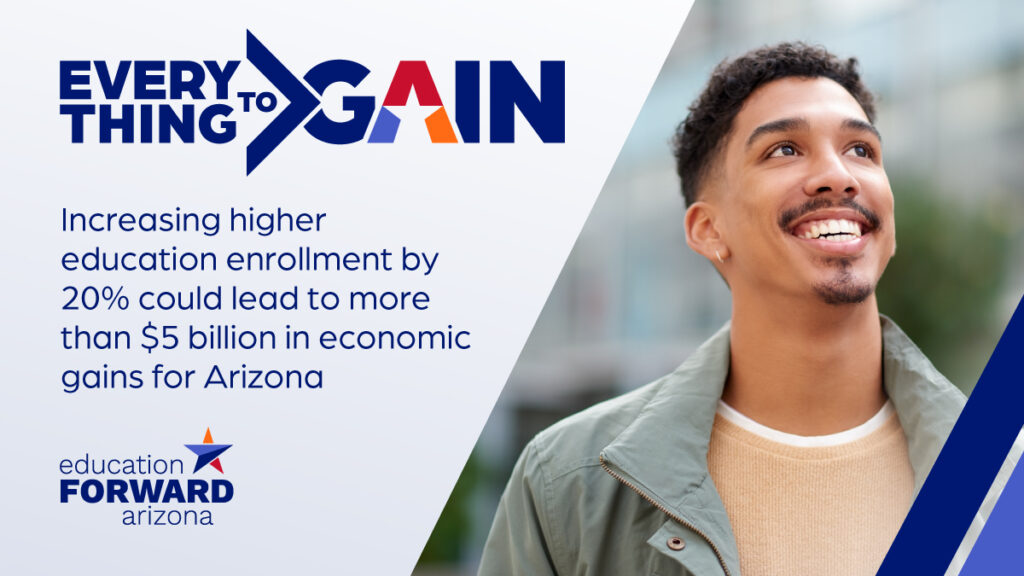
Billions to Gain: The Economic Benefits of Investing in a More Educated Arizona
Billions to Gain: The Economic Benefits of Investing in a More Educated Arizona, a new report produced by Helios Education Foundation and Education Forward Arizona, details the benefits of postsecondary attainment for Arizona’s economy.
The economic benefits of postsecondary education—for individuals, communities, and Arizona—are undeniable. Arizonans who enroll in college can expect significant gains, including increased lifetime earnings and more economic opportunities. Those who complete college stand to gain even more, especially if they earn a bachelor’s degree.
At the same time, these benefits for individuals contribute to enormous economic gains for communities and the state. Increasing the postsecondary enrollment rate in Arizona by 20 percent, for example, would lead to gains— including lifetime earnings, improved health, reduced crime and welfare spending, and increased workforce productivity—that exceed $5 billion per cohort.

The value of cultivating a more educated Arizona is not news to economists, industry and community leaders, the education field, or policymakers. It is among the main reasons why, in 2015, Arizona established the Achieve60AZ attainment goal with the intent of ensuring that 60 percent of adults ages 25-64 in the state hold a postsecondary credential (certificate or degree) by 2030.
Nearly eight years later, we are still a long way from reaching our collective goal. As the latest data tracked by the Arizona Education Progress Meter shows, the postsecondary attainment rate was just over 48 percent in 2021.
Approximately 25 percent of high school graduates in Arizona who are eligible do not go to community college or a four-year university. Only one in 10—earn advanced degrees and postsecondary attainment patterns are stratified along all too familiar racial and socioeconomic lines. Consequently, communities, municipalities, regions, and Arizona as a whole, are all missing out on the extraordinary aggregate benefits that result from having a more educated populace.
All told, the billions in economic gains that come from expanding postsecondary enrollment and completion—not to mention the thousands of individuals empowered with greater economic opportunity and prosperity—more than justify the investments required of the state to ensure that more students graduate high school and go on to pursue a postsecondary education.
About Billions to Gain
To demonstrate how much Arizona—and individual Arizonans—would economically benefit from increased rates of college-going, the analysis detailed in Billions to Gain uses state-specific and national data to model a range of statewide scenarios and their corresponding economic consequences. Using a single cohort of 68,690 high school graduates from Arizona’s public schools (the “class of 2022”), the analysis models all the monetary flows attributable to each educational status—specifically, high school graduate, some college, associate degree, bachelor’s degree, or advanced degree—over an individual’s working life. It looks at the benefits of college enrollment and completion from three distinct perspectives:
- For individual Arizonans, the benefits of postsecondary attainment are expressed primarily in terms of higher lifetime earnings and increased economic opportunities.
- The social perspective shows how college enrollment and completion are good for communities and the state of Arizona as a whole (such as through higher earnings, improved health, and reductions in crime).
- The fiscal perspective models the beneficial tax consequences at the federal and state/local levels.
